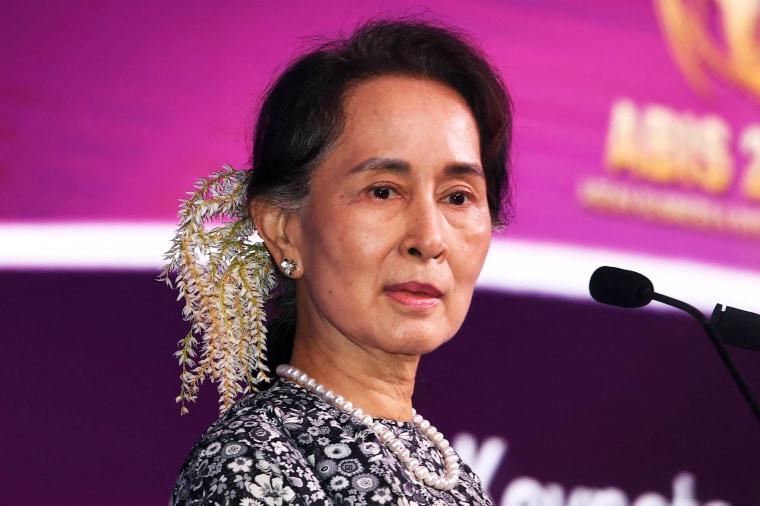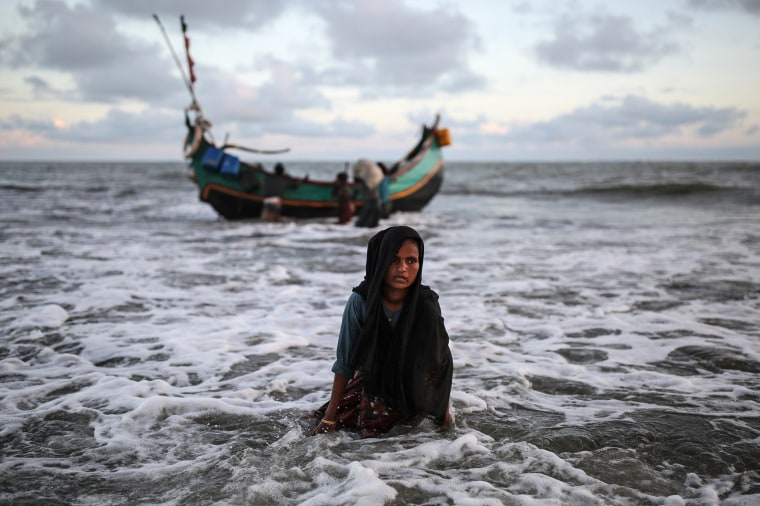U.N.-backed investigators say they have found significant evidence of “systematic torture” at Myanmar detention centers, where the military government is holding children as young as 2 years old as proxies for their parents.
The Southeast Asian nation of about 54 million people has been mired in turmoil since 2021, when democratically elected leader Aung San Suu Kyi was overthrown by the military. The coup set off mass protests across the country that were violently suppressed, followed by a nationwide armed resistance movement that has displaced millions of people.

Investigators said Tuesday there was evidence of “a continued increase in the frequency and brutality of atrocities” across Myanmar, with war crimes and crimes against humanity committed by government security forces and affiliated militias as well as armed opposition groups.
That includes an increase in crimes committed against those in detention, many of whom are being held without due process, said Nicholas Koumjian, head of the Independent Investigative Mechanism for Myanmar.
“We’ve documented torture against those in detention, including beatings and electric shocks, strangulations, pulling out fingernails, gang rape, burning of sexual body parts and other forms of sexual violence,” he told reporters in Geneva as his team released its annual report.
Koumjian said investigators had seen evidence that children as young as 2 years old were being detained, often in place of their parents if they are accused of being associated with the opposition and cannot be found.
“Some of the detained children have been subjected to torture, ill-treatment or sexual and gender-based crimes,” the report says.
Myanmar’s military government has detained about 30,000 people in the past four years, according to the Assistance Association for Political Prisoners, an advocacy group that tracks arrests in the country.
The Myanmar military could not be reached for comment. It has denied any atrocities are taking place and blamed “terrorists” for unrest.
The 16-page report, which covers a one-year period up to June 30, draws on more than 1,300 sources, including nearly 600 eyewitness testimonies, photographs, videos, documents, maps and forensic evidence.
Koumjian said the Myanmar military appeared to be increasing its use of airstrikes as it loses control of more territory. They continued even after a devastating earthquake in March, he said, often against “blatantly civilian targets” such as schools, hospitals and places of worship.
“Often there’s no military target that we can identify anywhere in the area that could have been the intent of the airstrike,” he said.
Koumjian said investigators were working to determine how the airstrikes were ordered, who was in the chain of command and who flew the planes.
In addition, he said, there is growing evidence of crimes committed by opposition forces, including summary executions of captured fighters from other armed groups.

The team is also still investigating the 2017 Rohingya refugee crisis, during which more than 700,000 people from the mostly Muslim ethnic minority fled a military crackdown in Buddhist-majority Myanmar for neighboring Bangladesh. Along with other ethnic groups, the remaining Rohingya population is again in danger as they are persecuted by the Arakan Army rebel group that now has effective control of Rakhine state, their ancestral home.
Koumjian said investigators had made progress in identifying some of the people responsible for crimes in Myanmar, including commanders overseeing detention facilities, and that “we stand ready to support any jurisdictions willing and able to prosecute these crimes.”
“We are working towards the day when the perpetrators will have to answer for their actions in a court of law,” he said in a news release.
The work of Myanmar investigators is already being used in cases before the International Criminal Court (ICC), the International Court of Justice and in Argentina. In November, the ICC issued an arrest warrant for Senior Gen. Min Aung Hlaing, the head of Myanmar’s military government, for crimes committed against the Rohingya.
Min Aung Hlaing tightened his grip on power last month in an administrative restructuring as the junta said it was ending the state of emergency it declared in 2021. A general election is planned for December but faces a widespread boycott by critics who say it will be neither free nor fair.


